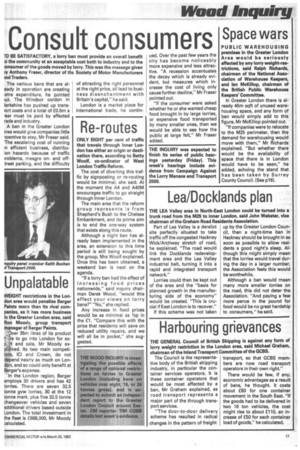ro BE SATISFACTORY, a lorry ban must provide an overall
Page 13

If you've noticed an error in this article please click here to report it so we can fix it.
benefit o the community at an acceptable cost both to industry and to the xmsumer of the goods moved by lorry. This was the message given sy Anthony Fraser, director of thE Society of Motor Manufacturers Ind Traders.
The various bans that are aleady in operation are creating ixtra expenditure, he pointed out. The Windsor cordon in lerkshire has pushed up transport costs and a total of £0.5m a 'ear must be paid by affected rade and industry.
A ban in the Greater London krea would give companies little rocentive to stay, Mr Fraser said. The escalating cost of running in efficient business, distribuion hazards because of traffic Problems, meagre onand offtreet parking, and the difficulty of attracting the right personnel at the right price, all lead to business disenchantment with Britain's capital," he said.
London is a market place for international trade, he contin ued. Over the past few years the city has become noticeably more expensive and less attractive. "A recession accentuates the decay which is already evident, but measures which increase the cost of living only cause further decline," Mr Fraser pointed out. "If the consumer were asked whether he or she wanted cheap food brought in by large lorries, or expensive food transported by many smaller ones, then we would be able to see how the public at large felt," Mr Fraser added.
THE INQUIRY was expected to finish its series of public hearings yesterday (Friday). This week's hearings include evidence from Campaign Against the Lorry Menace and Transport 2000.
















































